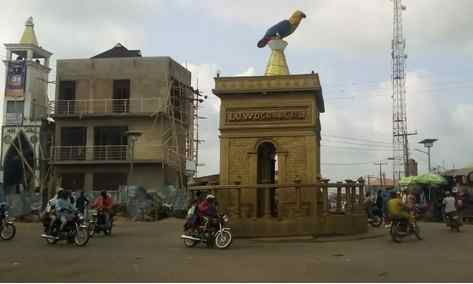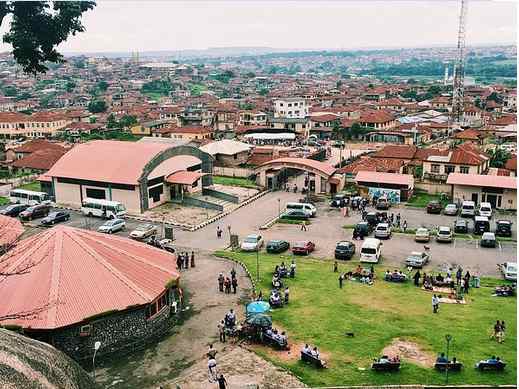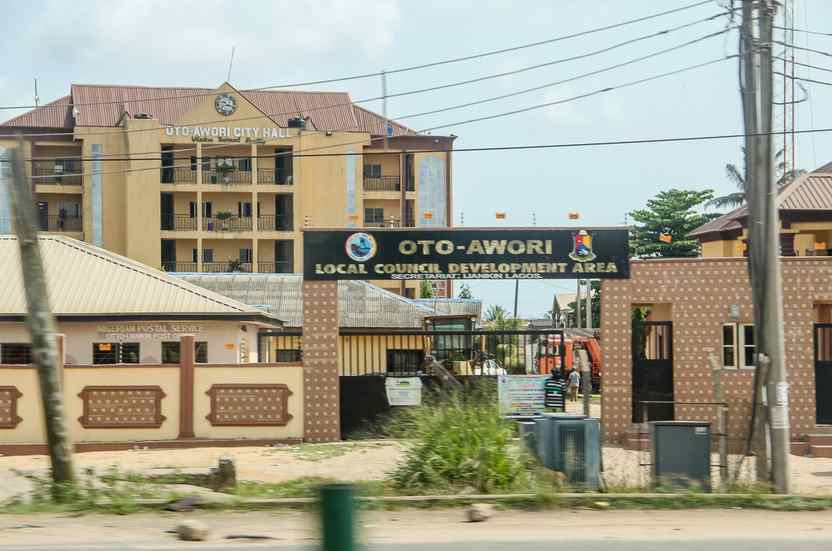
support@yorubalibrary.com
+2348073529208, 07038599574

Iwo is one of the most prominent and historic towns in Osun State, South-West Nigeria. Renowned for its royal heritage and cultural identity, Iwo has long been a seat of traditional leadership in Yoruba land. The town is the home of the Oluwo of Iwo, one of the most respected monarchs in the region, whose palace stands as both a cultural symbol and a center of communal life.
Iwo’s history is valued in migration and settlement patterns that shaped much of Yoruba land. Oral traditions trace its people’s origins to key Yoruba dynasties, highlighting a legacy of bravery, unity, and innovation. Over the centuries, Iwo has grown into a thriving town where tradition meets progress — a place where cultural festivals, religious diversity, and market life coexist in harmony.
The people of Iwo are celebrated for their hospitality, industrious nature, and devotion to preserving Yoruba customs. Whether it is through the annual cultural events, the colorful markets, or the recitation of Oriki (praise poetry), Iwo’s identity remains strong and unshakable. Its location also makes it an important commercial hub, connecting various parts of Osun State and neighboring regions.
Location and Geography
Iwo is located in the northwestern part of Osun State, bordered by towns such as Oluponna, Ile-Ogbo, and Aiyedire. The terrain is a mix of savanna and forest, with fertile soil that supports diverse agricultural activities. Iwo’s central position makes it a key transit point for travelers and traders moving between Oyo, Osun, and Ogun States.
Cultural and Historical Significance
Iwo holds a significant place in Yoruba history as a town with strong royal influence and traditions. The Oluwo’s palace is a focal point for cultural governance and community gatherings. Festivals and traditional events bring together indigenes from far and wide, strengthening bonds between generations. The town also has a history of religious inclusiveness, hosting both Islamic and Christian communities alongside indigenous beliefs.
People and Occupations
Agriculture is a major occupation in Iwo, with farmers producing crops such as yam, maize, cocoa, and kolanut. Trading, tailoring, craftsmanship, and transportation services also contribute to the local economy. The markets in Iwo are lively centers where agricultural produce, textiles, and household goods are exchanged.
Unique Features of the Town
Notable landmarks in Iwo include the Oluwo’s palace, the town’s central mosque, several historic churches, and cultural sites tied to Yoruba traditions. Its market life, coupled with its royal prestige, makes Iwo a destination for both cultural tourism and commerce.
Oriki Ilu Iwo
Below is the traditional Oriki (praise poetry) of Iwo, Osun State.
Iwo olodo oba,
omo ateni gbola,
teni gbore nile odidere.
Omo oba Telumere afiporo je omo to lu gberin gberin
Iwo ti ko nilekun beni koni kokoro,
Eru ko gbodo je m’ogberin,
Iwofa ko gbodo je mogbede
Omo bibi inun won ni je m’oderin
Bi wo kola biwo kolowo lowo,
eru ti n se mi ni rami ta mi to mi ni temi o jare
Iwo lomo Olola ti n san keke,
Iwo lomo oloola ti n bu abaja
Agbere ni wa won ki gbowo Ila lowo awa
Eyin lomo ara eru ke omo,
omo ara eru bere eni.
Omo araya le ki omo tode.
Iwo ilu Alfa
Iwo todidere pepepe tenure te k’oroyin.
Edumare Bawa Da Ilu Iwo si,
Amin Ase.
Conclusion
Iwo is a town where history, royalty, and community pride come together in remarkable harmony.
Need more? Browse through our Oriki Gallery today, at zero cost.

Check out the detailed Oriki of Abeokuta, the capi…

The authentic Oriki of the Awori people, one of th…